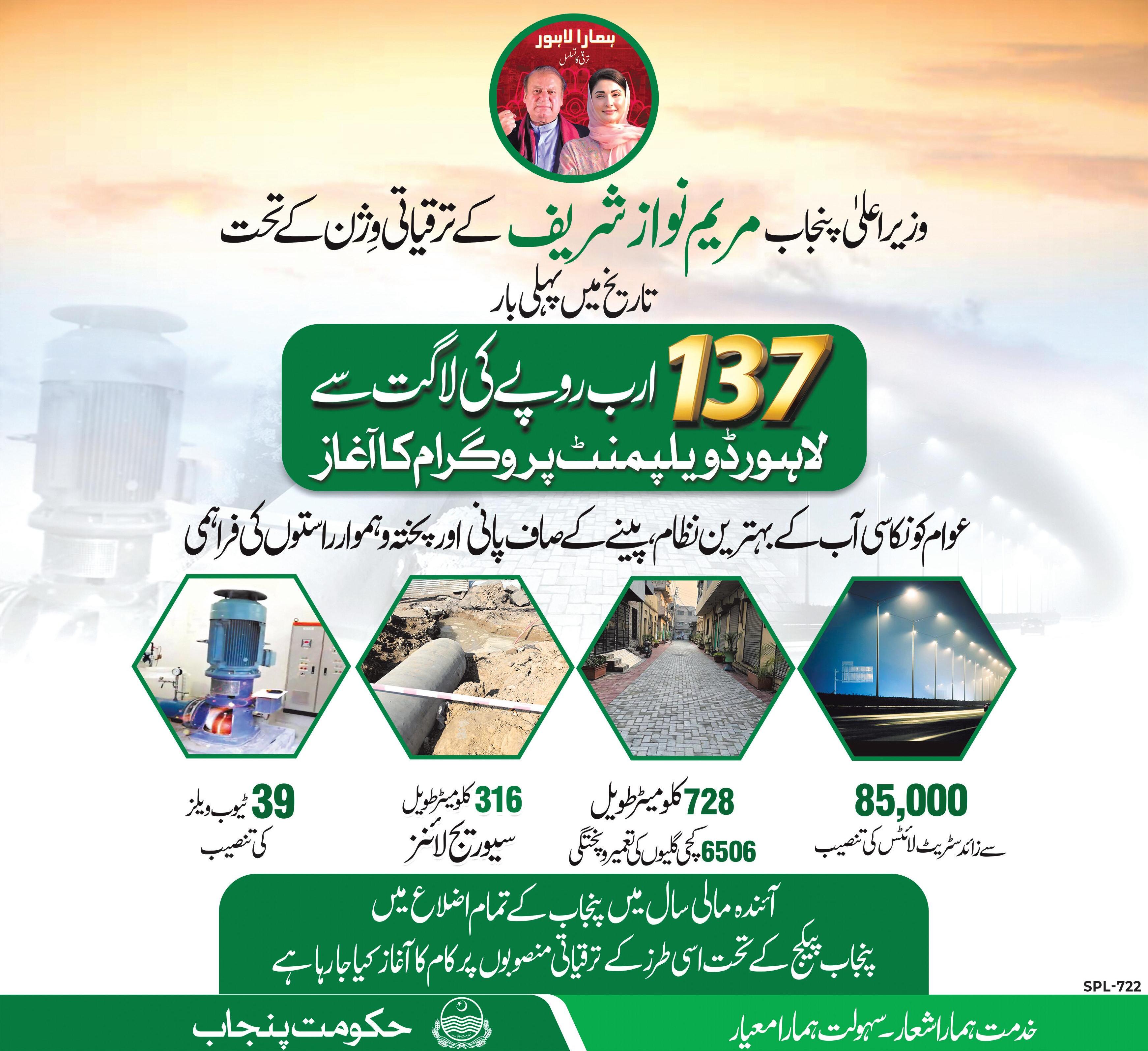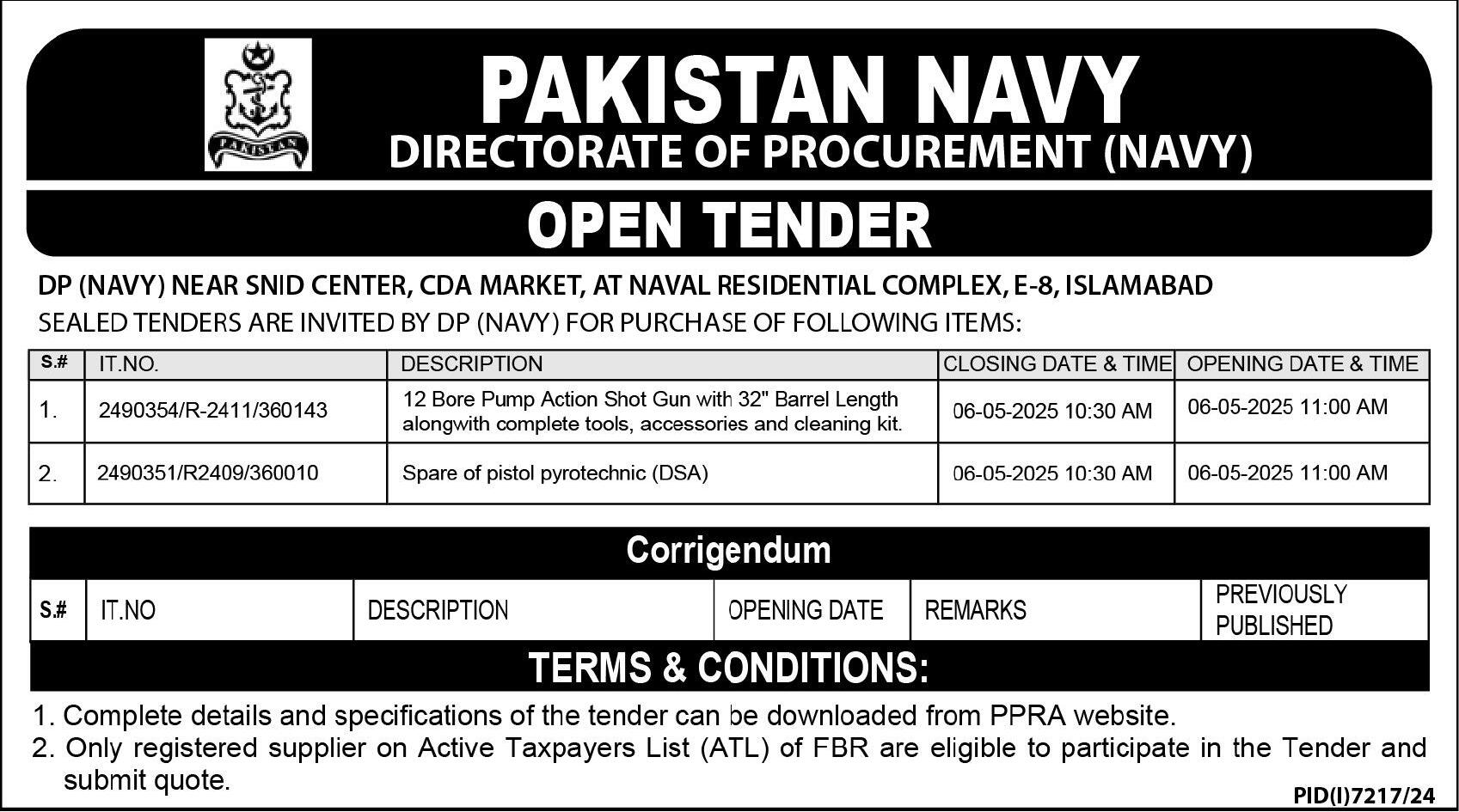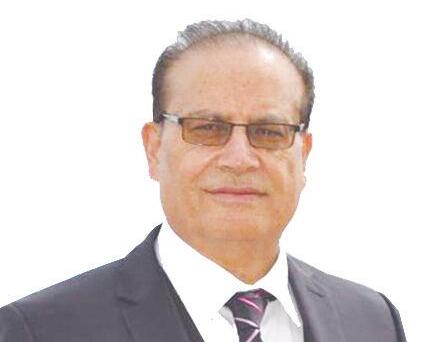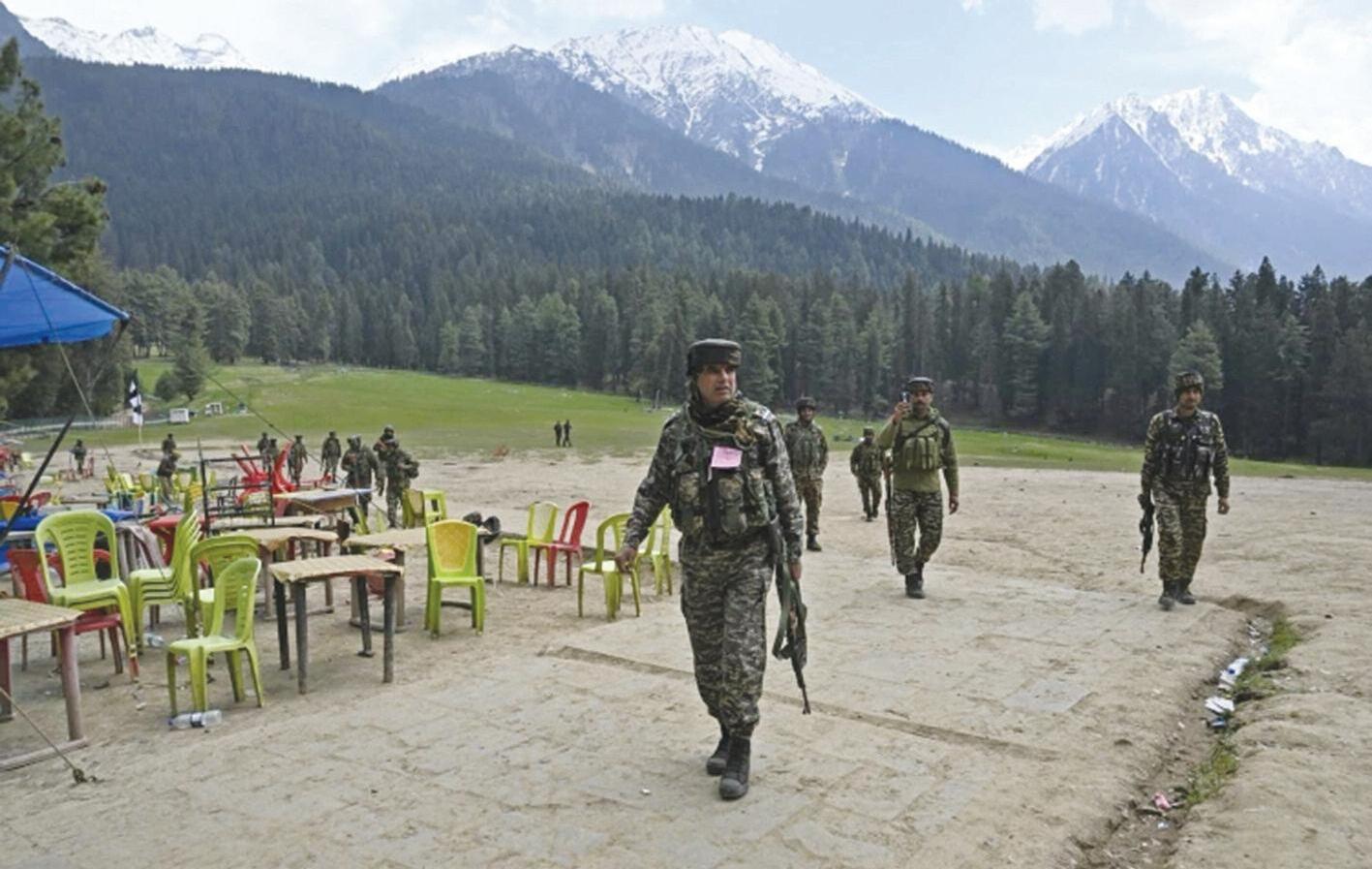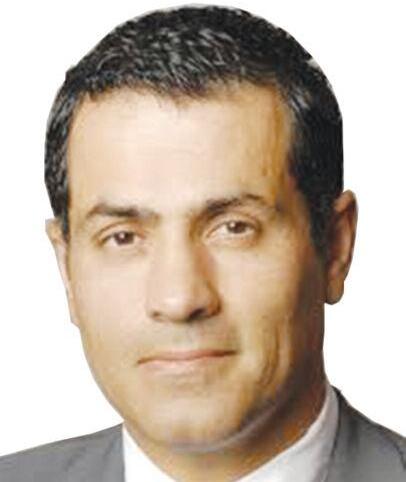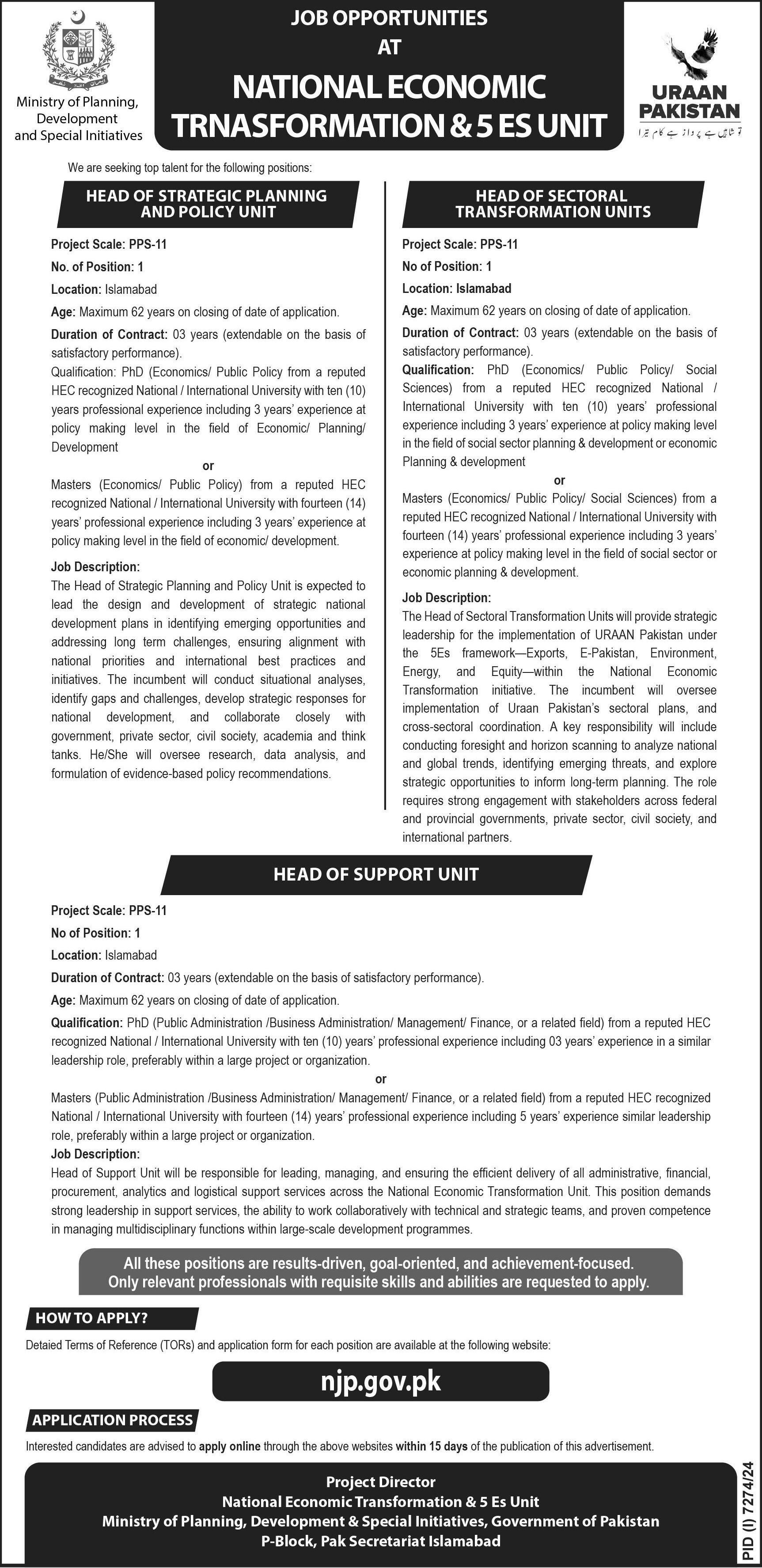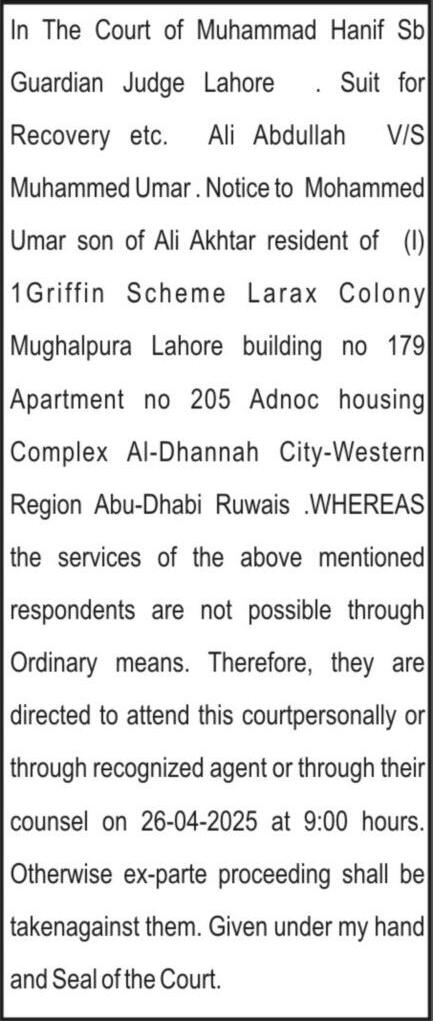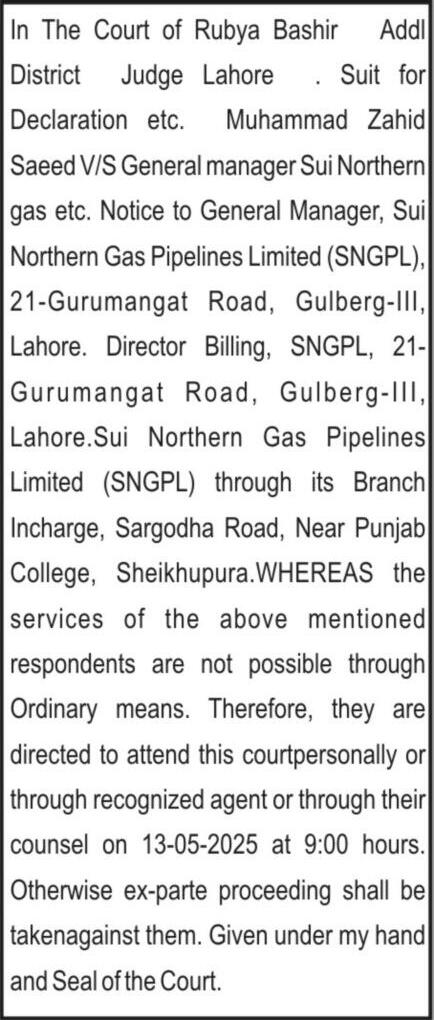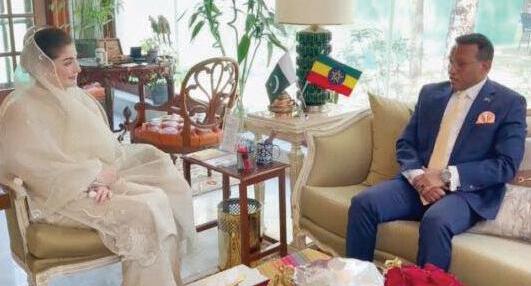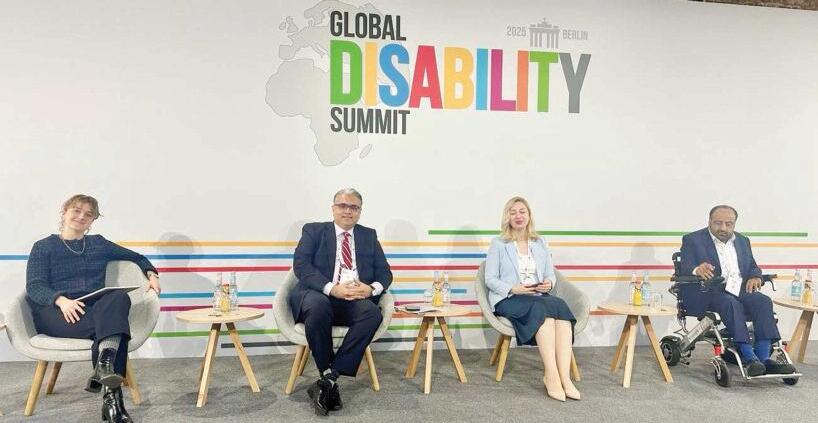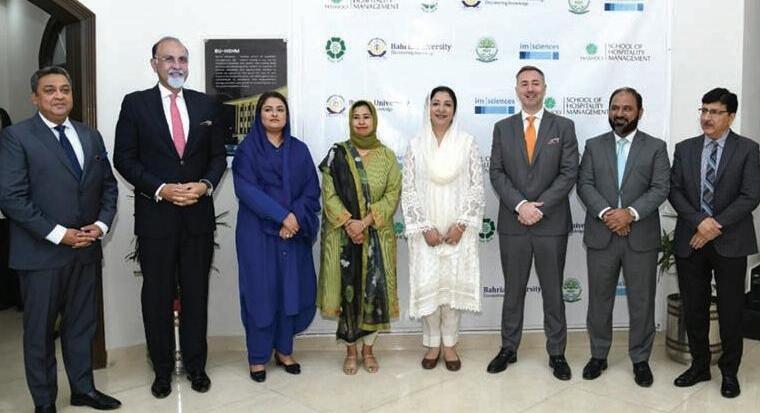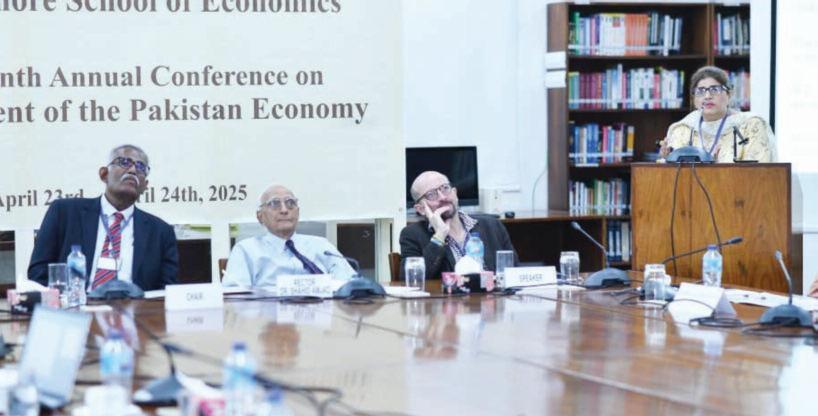USURPATION OF WATER SHARE TO BE CONSIDERED ‘ACT OF WAR,’ PAKISTAN RETALIATES AGAINST INDIA’S ESCAL ATING MOVES
Senate panel directs SBP, FBR to curb fraud, trade based money laundering in solar panel imports
stalled operations of the BAA serve as a reminder of the challenges in addressing this wealth imbalance and the systemic issues preventing effective enforcement of the Benami Law According to the report the FBR s spokesperson explained that the appointment process had taken longer than expected as there was a strong focus on ensuring the right fit for the role, emphasising the significance of the AntiBenami Initiative (ABI) The spokesperson reassured that efforts are underway to complete the appointments with due care The concentration of wealth among Pakistan s elite is evident with the top 1% of the population controlling 22% of the country’s total wealth Despite the passage of the Benami Law, many elite individuals have continued to hide their assets under the names of others evading scrutiny The wealth disparity in Pakistan is stark with the bottom 50% of the population holding just 4% of the total wealth, while around 40% of the population lives below the poverty line
Pakistan’s state - owned enterprises drain $19.5 billion over 10 years, NA panel told
PR OFIT
M o n i to r i n g D e s k Finance Minister Muhammad Aurangzeb in a series of high-level meetings on the sidelines of the IMF-World Bank Spring Meetings in Washington D C discussed various economic initiatives, including the issuance of Pakistan s inaugural Panda Bond within the current calendar year During a meeting with Jin Liqun, President of the Asian Infrastructure Investment Bank (AIIB) Aurangzeb outlined Pakistan s plans for future development projects and reiterated the government s desire to proceed with the issuance of the Panda Bond This meeting underscored Pakistan’s ongoing engagement with AIIB seeking continued
The committee also discussed the privatisation of three loss-making power distribution companies Sepco Hesco and Pesco
The Power Division informed the committee that discussions were underway with the World Bank regarding the privatization of these companies with financial advisors expected to be appointed after the companies accounts are updated by September 2025
financial support for critical infrastructure development In discussions with UAE Minister of State for Financial Affairs Mohamed Bin Hadi Al Hussaini, Aurangzeb highlighted key economic indicators, including the recent sovereign rating upgrade by Fitch and the government s privatization agenda
He also informed Al Hussaini about Pakistan s Staff-Level Agreement with the IMF and ongoing efforts for restructuring and economic stabilization The finance minister extended an invitation for Al Hussaini to visit Pakistan Further discussions took place with Saudi Minister of Finance Mohammed Aljadaan where Aurangzeb thanked Saudi Arabia for its continued support of Pakistan s economic development, especially in rela-
tion to the IMF program and emphasized the need to maintain reform momentum He also invited Aljadaan to visit Pakistan During a meeting with China s Finance Minister Lan Fo’an, Aurangzeb expressed gratitude for China’s support for Pakistan’s economic reforms and provided an update on the status of the Panda Bond He also requested the support of the People s Bank of China (PBOC) to expedite the issuance process On the global front, the finance min-
The Kuwait Foreign Petroleum Exploration Company (Kufpec) a longstanding player in Pakistan s energy market, has confirmed its participation in the upcoming offshore bidding round A high-level
Usurpation of water share to be considered ‘ac t of war,’ Pakistan retaliates to India’s esc alating moves
CONTINUED FROM PAGE 01
“Expressing concern over the loss of tourists’ lives the committee reviewed the Indian measures announced on 23rd April 2025 and termed them unilateral unjust politically motivated extremely irresponsible and devoid of legal merit the statement added Pakistan vehemently rejects the Indian announcement to hold the Indus Waters Treaty in abeyance,” the PMO statement said, noting the pact was a binding international agreement that contained no provision for unilateral suspension
The apex security forum reaffirmed that Water is a Vital National Interest of Pakistan a lifeline for its 240 million people and its availability will be safeguarded at all costs
“Any attempt to stop or divert the flow of water belonging to Pakistan as per the Indus Waters Treaty and the usurpation of the rights of lower riparian will be considered as an Act of War and responded with full force across the complete spectrum of National Power it added Noting the reckless and irresponsible behaviour of India, which disregards international conventions, UN Security Council Resolutions and international obligations at will, the NSC said that “Pakistan shall exercise the right to hold all bilateral agreements with India including but not limited to Simla Agreement in abeyance till India desists from its manifested behaviour of fomenting terrorism inside Pakistan; trans-national killings; and non-adherence to international law and UN Resolutions on Kashmir
The forum decided that Pakistan shall close down the Wagah Border Post with immediate effect All cross-border transit from India through this route shall be suspended without exception Those who have crossed with valid endorsements may return through that route immediately but not later than 30 April 2025
Pakistan suspends all visas under SAARC Visa Exemption Scheme (SVES) issued to Indian nationals and deems them cancelled with immediate effect, with the exception of Sikh religious pilgrims Indian nationals currently in Pakistan under SVES are instructed to exit within 48 hours less Sikh pilgrims
The NSC said Pakistan declares the Indian Defence, Naval and Air Advisors in Islamabad persona non grata They are directed to leave Pakistan immediately but not later than 30 April 2025 These posts in the Indian High Commission are deemed annulled Support staff of these Advisers are also directed to return to India
The strength of Indian High Commission in Islamabad will be reduced to 30 diplomats and staff members, with effect from 30 April 2025
The committee further decided that Pakistan’s airspace will be closed with immediate effect for all Indian owned or Indian operated airlines
All trade with India including to and from any third country through Pakistan is suspended forthwith
The National Security Committee underscored that Pakistan and its Armed Forces remain fully capable and
prepared to defend its sovereignty and territorial integrity against any misadventure as clearly demonstrated by its measured yet resolute response to India s reckless incursion in February 2019
It said India’s belligerent measures have vindicated the Two- Nation Theory as well as the apprehensions of Quaid-e-Azam Muhammad Ali Jinnah as encapsulated in the 1940 Pakistan Resolution which continues to echo the sentiments of the complete Pakistani Nation The Pakistani Nation remains committed to peace, but will never allow anyone to transgress its sovereignty, security, dignity and their inalienable rights Expressing concern over the loss of tourists’ lives the Committee reviewed the Indian measures announced yesterday and termed them unilateral unjust politically motivated extremely irresponsible and devoid of legal merit
The forum observed that Kashmir remains an unresolved dispute between Pakistan and India as recognized through multiple UN resolutions Pakistan continues to support the right of self-determination of the Kashmiri people The continued Indian state oppression abrogation of statehood political and demographic gerrymandering has persistently led to an organic backlash from the people of IIOJK which perpetuates cycles of violence India s systemic persecution of minorities, particularly Muslims, has become more pervasive Attempts at forced passage of Waqf Bill is the latest effort to marginalize Muslims across India
It added that India must resist the temptation to exploit such tragic incidents to its advantage and take full responsibility for its failure to provide security
manifestations As the world’s front-line state against terrorism Pakistan has suffered immense human and economic losses Indian attempts to inject volatility in the environment along Pakistan s Eastern borders are aimed at distracting Pakistan s counter-terrorism efforts In the absence of any credible investigation
Pahalgam attack with Pakistan are frivolous, devoid of rationality and defeat logic
The committee said India’s worn-out narrative of victimhood cannot obfuscate its own culpability in fomenting terrorism on Pakistan s soil nor can it distract attention from its systematic and state sponsored oppression and human rights violations in IIOJK Contrary to Indian claims, Pakistan has in its custody incontrovertible proof of Indian-sponsored terrorism in Pakistan including the confession of a serving Indian Navy officer Commander Kulbhushan Jadhav who remains a living testament to India s state-sponsored terrorist activities Deploring the implicit threat contained in the Indian statement of yesterday, The National Security Committee said the international community ought to remain mindful of India’s state sponsored extraterritorial assassinations or attempts on foreign soil
FBR sets May 1 deadline for electronic invoicing integration for businesses
Corporate
with FBR's digital invoicing
over
points amid global and geopolitic al tensions
COMMENT
Once more, the nuclear-armed neighbours move closer to the brink
IT was bad enough that the Indian media came down like a ton of bricks on Pakistan for the Pahalgam attack, in which 26 tourists, one a Nepalese, were killed, and at least 17 others injured However, by taking a slew of measures against Pakistan, India left no doubt about who it blamed, even though it refrained from making the outright accusation The attack came out of the blue and was not preceded by that series of smaller attacks one would expect if a terrorist outfit was involved Considering India s past record, which includes not only false-flag operations but assassinations on foreign soil, it seems as if the operation was launched so that India could take the steps it did The most significant was suspending the Indus Basin Waters Treaty That raised hackles in Pakistan because it represented an existential threat Interestingly the Treaty does not include any exit clause, which would have described how any party could leave the treaty Further, the Treaty is underwritten by the World Bank It is perhaps unfortunate that the Bank is presently headed by Ajaypal Singh Banga who will hold office until 2028 Though a US citizen he is the son of a retired lieutenant general of the Indian Army How much justice can Pakistan expect from him? Still, there are a number of forums which Pakistan can agitate It should not expect too much support, for the world powers may once again repeat the pusillanimity they have shown on the Kashmir issue, and go along with its narrative no matter how risible just because it is a large (though impoverished) market The response of Pakistan’s National Security Committee which was to put all other agreements in doubt, and to suspend the 1972 Simla Agreement India has insisted ever since that the Kashmir issue could only be resolved bilaterally, and not raised at any international forum Pakistan has so far responded judiciously, and its civilian and military leadership has not shown any signs of panic Yet at the same time it should be acknowledged that war has not been so close since the Pulwama attack allegations by India in 2019 If war comes, it will have been imposed by India, but it will find Pakistan and Pakistanis fully prepared However, the chances of the world powers stepping in to avert armed conflict between nuclear powers are bright Hopefully both sides can stay off the slippery slope of escalation

Dedicated to the legac y of late Hameed Nizami Arif Nizami (Late) Founding Editor
M A Niazi Editor Pakistan Today Babar Nizami Editor Profit
TH E R E seems to be an emphasis in government circles on mineral extraction woth the holding of the Minerals Investment Forum in Islamabad the most emphatic evidence of this, while the Prime Minister in addressing potential investors mentioned minerals as an area where investment could be made Some of the hype has been created by Barrick Gold s announcement that it would bring the Reko diq project into production by 2028, when the gold and copper deposits would be mined to produce about $10 billion in exports for the country, not to forget that half of this would represent revenue for the federal and provincial governments Reko Diq is not the first mining project in Chaghi district Earlier there was the Saindak project which was operationalized by a Chinese company to exploit copper and silver It seems, therefore, a safe bet that the general area would contain further deposits of copper and precious metals In a wider area the possibility of rare-earth deposits also exists which will be crucial in the new age of renewables and power storage Deposits have already been identified in Afghanistan and there is every likelihood of their presence also in geological formations which it shares with Pakistan, like the Takht-i-Sullaiman mountain range The idea has been floated that Pakistan should offer them to the USA as a price of reducing or eliminating the tariff imposed on it This is probably an inspiration from the idea that US President Donald Trump floated that Ukraine should give mineral rights to US companies of its rare-earth deposits in compensation for US military aid in its conflict with Russia It is also worth noting that these metals are likely to be in demand during the world’s transition to clean energy as more chargeable batteries and new circuits are required Therefore the revenue to the country is likely to go up rather than down There is also the likelihood of further deposits being identified This will not only mean that the mineral wealth will continue to be productive, but Pakistan will approach closer to what might be described as the Gulf Model where the locals did more or less nothing as others came in and extracted the valuable mineral (oil) and made them very rich It is worth noting that the establishment is
It
also worth noting that Finance Minister Muhammad Aurangzeb has pointed to the example of Singapore s nickel as an example of how mineral extraction could be used to pull an economy out of poverty, and place it in the ranks of the prosperous countries It doesn t quite work that way as mineral wealth does not necessarily
states faces is that extractive industries are not labour-intensive and thus not many jobs are created As experienced in the Gulf, jobs are often taken by expatriates, who send their wages home, and thus the benefit to the local economy is further reduced For growth, labour-intensive industries work, as in textile made-ups which Pakistan already has Apart from being capital-intensive there is a strong chance of extractive equipment having to be imported An example is the interest shown by the Prime Minister in the Belaz factory in Belarus during his recent visit Belaz is one of the world s largest makers of dump trucks and other vehicles needed around mining sites If it sold those vehicles the proceeds of the bonanza would at least partially end up in Belarus It should be remembered that as the deposit is being exploited by a foreign firm the chances are its engineers would like to source their equipment from known suppliers, who would inevitably be abroad Then there is the exchange rate Obviously, the boost in exports means that the local currency would rise in value That incidentally means that other exports suffer That is a problem for Gulf countries but a gradual one a potential one For

Need to reclaim the national spirit
Pakistan encompassing Islam, the communal bond and self-determination State building during the first ten years was highly purposeful and clearly defined in fulfilling the impression of a modern progressive and Islamic welfare state However over time various internal challenges and external pressures diluted the clarity of this nationalistic vision
Strengthening Pakistani nationalism has become increasingly important in fostering national coherence and ensuring its survival Ethnic disputes political volatility religious fanaticism economic crises and geopolitical hostilities all exist contemporaneously and Pakistan is struggling to overcome them Because of these problems, the bond shared by the people has begun to weaken, fissuring their trust and blurring the identity that is supposed to be collectively embraced Ethnic and linguistic boundaries can be transcended with a strong sense of Pakistani nationalism It can assist in the creation of a modified identity centered towards the greater interest of the nation rather than self or group affiliation When these concepts are instilled, citizens are motivated towards contributing positively to national development and stability which is essential for the growth of the country
and its people Nationalism can provide Pakistanis the much-needed psychological defense against the hybrid warfare violence attempting to divide society Additionally strengthening nationalism can empower and inspire the youth to restore their faith in state institutions, guiding them to actively partake in national service It is evident that, if properly oriented and put into action, Pakistani nationalism could take a decisive part in fulfilling national interests The aggregation of people into nations is a basic foundation of any strong nation Having an ethnically homogeneous nation enables effective defense and strengthened military, secure wealth and economic prosperity, and serves as a robust foundation for diplomacy at a global level In a more casual language the further aid of this ideology can be seen in ameliorating social rifts hence reducing friction internally If people tend to place first their allegiance as Pakistani citizens, along with their ethnicity or sect, garnering agreement to carry out changes alongside achieving collective endeavors becomes more readily attainable It also contributes towards improved social contract between state and people and improved governance and civic engagement From the economic perspective alongside globalism nationalism can foster self-sustainability and support local businesses and inventions This ideology ensures the high resilience needed to sustain progressive evolution in both public and private sectors
There still exist a few aspects of Pakistani nationalism that may prove the most difficult to cope with Fragmentation of ethnic identities stands out as one of the most challenging aspects, along with some differentiating features There exist strong regional identities such as Punjabi, Balochi, Sindhi and others which pose counter to the national identity and further provoke distrust and isolation These sentiments are sometimes exploited by hostile forces to create discord and separatist tendencies Another challenge is religious extremism and sectarianism which distorts the inclusive spirit of nationalism Extremist ideologies undermine national unity by promoting intolerance and violence, particularly against minority communities
The rising political polarization coupled with deep-seated institutional mistrust adversely affects the sentiment of nationalism The perception of national pride among the populace is diminished
when the leaders and the institutions are perceived as corrupt unjust or inept Moreover the lack of equitable development in conjunction with the marginalization of certain regions further erodes national unity In addition external propaganda misinformation, and disinformation campaigns, particularly via social media seek to undermine national symbols, history and ideology Ideologically motivated campaigns target the youth where confusion about identity and values is created Pakistani nationalism requires multifaceted measures to strengthen it Most importantly education is the key to unlocking the potential of students There should be a consideration of social studies as a subject that offers a comprehensive insight into the country’s history The media culture and civil sectors have a responsibility to highlight the national figures that unite us while reinforcing the concept of diverse unity Patriotism or fervent nationalism should not encourage feelings of hatred directed toward others but rather promote love towards the country, culture and hope for the future Good governance and justice are equally important When people see fairness accountability and development their trust in the nation strengthens Equitable development and political inclusiveness across provincial boundaries help alleviate thoughts of being excluded from society Participation of young people is very important and vital Young people need to participate in activities such as nation-building innovation guiding and leadership They have the vigor and inventiveness to advance the nationalistic cause especially in cyberspace Lastly scholars and local leaders need to unite to positively interpret Islam in a way that promotes peace, tolerance and patriotism towards people of different communities allowing for unity and mutual coexistence Pakistani nationalism is more than a political idea; it is the soul of the nation In times of crisis it has the power to unite inspire and transform Strengthening it is not just a matter of pride but a necessity for survival and progress By addressing the challenges and adopting an inclusive and visionary approach, Pakistani nationalism can become a powerful force in achieving the country’s national interests and securing a prosperous future for all its citizens
The writer is a freelance columnist
In times of crisis, it has the power to unite , inspire and transform. Strengthening it is not just a matter of pride but a necessity for sur vival and progress. By addressing the challeng es and adopting an inclusive and visionar y approach, Pakistani nationalism can become a powerful force in achieving the countr yÊs national interests and securing a prosperous future for all its citiz ens.
Frozen alarm
Nicotine policy
Rising UV index
Dr MuhaMMaD anwar Farooq
Pa ki s t a n m u s t b e c a re f u l
Treinforcing the Indo-U S strategic partnership These visits were public affirmations of India s growing economic and geopolitical
Sweden, and Russia condemned the attack in the strongest terms The Saudi Foreign Ministry called it a violation of all humanitarian norms Iran reiterated its principled stance against all forms of terrorism Russia s President Vladimir Putin extended his condolences and reaffirmed solidarity with
global consensus that terrorism has no justification and that targeting innocent lives for political or ideological objectives is inexcusable
On Indian social media platforms there has been an outpouring of grief, anger, and calls for justice Many citizens pointed fingers at Pakistan, reflecting a long-held belief among Indians that cross-border terrorism is often facilitated or tolerated by elements within Pakistan s establishment
The perception that Pakistan is a terrorist state is increasingly gaining ground internationally, especially when such incidents follow provocative statements by senior Pakistani officials In this case, the attack followed a strong statement by Pakistan’s Army Chief Gen Asim Munir reiterating Pakistan s claim over Kashmir and pledging continued resistance In response, India took diplomatic measures that are likely to have lasting consequences The expulsion of Pakistani military attachés withdrawal of Indian officials from Islamabad and the suspension of diplomatic channels signal the freezing of bilateral relations The cancellation of the Indus Waters Treaty is particularly significant Signed in 1960, the treaty has withstood wars and crises By setting it aside, India has not only struck at Pakistan’s vital water lifeline but also sent a message that it will no longer adhere to outdated obligations when its national security is under threat
The non-kinetic actions, such as border
sealing and diplomatic disengagement, have been paired with military readiness While there has been no official announcement of kinetic retaliation parallels are being drawn with Israel s response to the October 7 Hamas attack A surgical strike or targeted retaliation is within India s options, although the scale may be limited given Pakistan’s status as a nuclear power
The potential reactivation of skirmishes along the Line of Control cannot be ruled out In recent years the border had seen relative calm due to backchannel diplomacy and ceasefire agreements But this latest attack may bring back regular cross-border firing, endangering civilians and further straining relations India due to its robust economy and strong
r a i n t , j u s t i c e , a n d d i p l o m a c y mu s t p r e va i l I f b o t h n a t i o n s c h o o s e t h e p a t h o f d e - e s c a l a t i o n a n d c o o p e r a t i o n , t h e r e g i o n m ay y e t e m e r g e s t ro n g e r f ro m t h i s c r i s i s B u t i f s a b r e s c o n t i n u e t o r a t t l e , i t i s t h e o rd i n a r y p e o p l e o n b o t h s i d e s w h o w i l l p ay t h e p r i c e
I r a n i s t h e e n e m y t h e W e s t c r
e a t e d
FO R over four decades Iran’s policies have posed serious challenges to its neighbors and the West The threat of Iran s nuclear program and its far reach across the Middle East through a chain link of well-armed allies has grown in magnitude as the Islamic Revolution of 1979 has receded in the rear view mirror Still, despite the gravity of this threat there is scant understanding of Iran’s intentions the assumptions calculations and goals that drive its international statecraft But what does Iran want and how does it seek to attain it?
Iran is a revisionary international actor This is perhaps expected insofar as the Islamic Republic was born of a revolution and revolutions by nature challenge the established order Iran’s international posture is also routinely blamed on the religious nature of its revolution and the theocracy that it has borne This line of reasoning however obfuscates the true motivations that drive Iran today
It is important to reiterate that Iran s antagonism towards the West has increased as the memory of the revolution has receded As the influence of ideology on state and society diminished, Iran has become more determined to resist the West even as it has faced growing economic and strategic costs In fact it seems that the Iranian regime is using religious ideology to maintain its confrontational stance in the interests of statecraft rather than being driven primarily by religious ideology It is not that theocracy needs war with the West, but that the war with the West needs theocracy Without ideology binding state and society, such a confrontation would not be possible As such, behind the veneer of religious ideology the Islamic Republic is today a national security state Close examination of ongoing debates in Iran suggests that the Islamic Republic s conception of national security – how to defend Iran, the Islamic Republic and the revolution, understood as one totality – is deeply ingrained in the understanding of the country’s history as well as lessons learned in contending with external threats in more recent years The language of statecraft is Islamic but it is a deep sense of insecurity and rage at imperialism that shapes its agenda Iran s revolutionary elite were inspired by Islamic ideology expounded by the revolution s founder, Ayatollah Ruhollah Khomeini That ideology drew deeply from Iran’s history of foreign interference and the ThirdWorldist anti-colonial movements that were popular in developing countries in the 1960s and 1970s The current Supreme Leader of Iran Ayatollah Ali Khamenei is wellread in that literature and his view of the West is reflective more of the discourse of the anticolonial theorist Franz Fanon than of Islamic theology
The revolution has focused on Iran’s history as a
The Middle East is ablaze with conflict. From Israel and Palestine, to Yemen and the recent collapse of the Syrian government, when there is crisis in the region fingers usually point in one direction. Towards Iran. But what is Iran’s grand strategy?
What revolutionar y Iran learned during the course of its war with Iraq shaped its national security thinking It learned that Iran was alone. The international community condemned neither Iraq’s invasion nor its use of chemical weapons And when Iran got the upper hand, the West and its regional allies threw their full suppor t behind Iraq
struggle for survival against imperialism In the 19th century Iran was humiliated and brutalized by European powers who took Iranian territory intermittently occupied the country and deeply penetrated its economy Iran barely survived intact and in the process nursed a deep distrust of the West which became entrenched as an article of faith for the revolution In the 20th century the Allied powers invaded Iran and occupied it during WWII At the conclusion of the war the Soviet Union tried to hold on to Iran s northwest only to be thwarted by the Truman Doctrine, a US foreign policy that pledged military and economic aid to countries resisting Soviet expansionism But the more crucial experience would come a short time later, when Iran’s prime minister, Mohammad Mossadegh would dismiss the Soviet threat to focus instead on anti-imperialism demanding that Britain relinquish rights to Iran s oil That gambit failed The United States although at first sympathetic to Iran s position saw it as naïve and dangerous – opening the door to communism and Soviet influence – and so threw its support behind the monarchy and the Iranian military, who saw Soviet communism as a greater threat than British imperialism Iranians would attribute the fall of Mossadegh to Western machinations and would lionize him as a political martyr on the altar of anti-imperialism Mossadegh s shadow looms large over Iran s current resistance to the West The lesson that Iran s revolutionary elite have accentuated is that the country’s independence and prosperity must be won in fighting the West This is the bedrock on which the Islamic Republic’s statecraft has been built And its opening act was the Hostage Crisis of 1979 that drove the United States from Iran and cast their relations in enmity One may have expected that over time this sour view of the West would have receded as the embers of revolutionary zeal died out and the Islamic Republic matured The opposite has happened That owes to learned experience in confronting external threats after the revolution and no lesson has been more salient than the Iran-Iraq war of 1980-88 That brutal war claimed hundreds of thousands of lives, displaced large number of Iranians, and demanded of state and society total commitment of all national resources to free Iranian territory from Iraqi occupation and then to wage a harrowing and costly campaign to continue the war in the hope of toppling the Baathist regime that had invaded Iran In the end Iran
Iran is best not thought of as a theocracy, but instead a security state If the West is to pursue peace in the region, outside intervention is merely fuel for the revolutionary fire and true change can only come from within
Iran learned that sustained asymmetric warfare –waged by local militias trained and led by Iran – can exhaust and deter the US. Success in Iraq led Iran’s rulers to turn it into a regional strategy, the so-called Forward Defense strategy – to contain American ambitions, and even force it to relax its containment of Iran
fell short of its war aims It won back its territory in 1982 but it had little to show for the enormous expenditure in blood and treasure over the following six years What revolutionary Iran learned during the course of that war shaped its national security thinking It learned that Iran was alone The international community condemned neither Iraq’s invasion nor its use of chemical weapons And when Iran got the upper hand the West and its regional allies threw their full support behind Iraq Iranians came to see surviving the war and winning back their territory in the face of Western support for Iraq as victory That had been possible only because the Islamic Republic then enjoyed the support of its population They were bound together by the force of revolutionary ideology in the defense of the homeland
The political and military elite who have since led Iran received their education in statecraft during the Iran-Iraq war, and important social and economic institutions and the all-powerful Islamic Revolutionary Guards Corps (IRGC) are the product of that war They came to see ongoing conflicts with the West in Lebanon and the Persian Gulf along with America’s apparently endless containment policy as clear arguments for ongoing ideological vigilance in the interests of national security The influence of revolutionary ideology on Iran would have waned had it not been for the verdict of the war
America’s invasion of Iraq in 2003 was another formative experience Iran viewed American resolve leading to the invasion with alarm The US had crossed a Rubicon in its thinking; it was now prepared to go to war to pacify the Middle East After Iraq it would be Iran s turn Tehran thus resolved to defeat US plans in Iraq before it sets its eyes on Iran Intervening in Iraq to mobilize Shia resistance to the US, and likely colluding with Syria to boost the Sunni insurgency there as well, was a strategy of survival As Iraq sank into chaos and civil war Washington set aside any plans for a war on Iran That was what Tehran wanted It learned that sustained asymmetric
Qamar Bashir
tion among major political parties and organizations within the SCO family Noting that the CPC maintains regular communication with over 130 political parties and organizations from the SCO, Liu said China proposed holding the Shanghai Cooperation Organization Political Party Forum on a regular basis to expand communication channels enrich exchanges and further consolidate the SCO political party network The event was an initiative proposed at last year s SCO Astana Summit, and its successful hosting marks an important

milestone ahead of the SCO Tianjin Summit this fall, under China s rotating presidency, said SCO Secretary-General Nurlan Yermekbayev “This year has been declared the Year of SCO Sustainable Development a designation that carries particular weight in an era defined by socio-economic disparities and environmental challenges, said Yermekbayev Under the SCO framework, a series of multi-sectoral initiatives are underway to advance regional sustainable development with a focus on areas such
transport connectivity, according to Yermekbayev Political parties are crucial
in shaping policies that ensure inclusive growth, protect the environment, and promote social equity,” said Anusha Rahman Ahmad Khan senator of the Pakistan Muslim League-Nawaz (PML-N) Emomali Rahmon president of Tajikistan and head of the
of the SCO should
4th Torsam Khan PSA Satellite Squash C’ship 2025 begins today
We are proud to announce the 4th Torsam Khan PSA Satellite Squash Championship 2025, taking place from April 25 to 28 2025 with the generous sponsorship of Image
for
at the Hashoo School of Hospitality
The
(HSHM) Bahria University
graced by the
and
of
Ms Wajiha Qamar Chief Executive Officer of PEEF, Parliamentary Secretary for the Ministry of Defence, Ms Zeb Jaffar, Chief Executive Officer of Pearl-Continental Hospitality Division Hashoo Group Mr Bastien Blanc and Executive Director – Hospitality and Education Division Hashoo Group Mr Haseeb A Gardezi The ceremony brought together government officials, industry leaders, students, and parents in a significant demonstration of public-private collaboration to enhance education and employment opportunities Delivering the keynote address, Ms Wajiha Qamar Minister of State for Federal Education and Professional Training emphasized the broader significance of the initiative: Education is the foundation of a resilient and progressive society When financial access through NEST-PEEF scholarships, visionary government support, and industry-relevant education from institutions like the Hashoo School of Hospitality converge we create powerful platforms for individual and national advancement This partnership reflects our resolve to equip youth with the tools they need to succeed
Jaz z unveils new leadership principles, transforming digital ser vices
ISLAMABAD S TA F F R E P O R T
As Jazz accelerates its evolution from a telecom operator to a full-fledged ServiceCo, the company has launched a bold set of Leadership Principles to anchor this transformation in a culture of purposedriven leadership accountability and inclusion Designed for every level of the organization from frontline employees to the Executive Leadership Team the principles serve as a
FBL unveils financial results for Q1 2025
N F O R M A L LY L A U N C H E S P I A
I VAT I S AT I O N , S E E KS E O I S B Y J U N E 3

Pakistan ranks fifth in the world for tuberculosis (TB) cases and fourth for drug-resistant TB a growing concern that disproportionately impacts children and young women, according to Sindh Health Minister Dr Azra Fazal Pechuho Speaking at the inauguration of a specialized TB clinic in Baldia Town Karachi on Wednesday Dr Pechuho emphasized that the area has become a hotspot for TB within Keamari district with a troubling rise in child mortality linked to the disease “TB is curable if diagnosed early and treated properly with the full course of antibiotics ” she explained However misuse and premature discontinuation of antibiotics have led to drug-resistant strains, which now require more complex treatments If resistance to these critical drugs develops, it poses a serious threat ” Dr Pechuho also highlighted that TB affects various vital organs beyond the lungs including the liver brain and bones particularly in children She urged the public to seek

medical advice and adhere to prescribed treatments to prevent the spread of the disease
Addressing the rise of drug-resistant TB, Dr Pechuho called for urgent collective action to control its spread She praised the initiative by Médecins Sans Frontières (MSF) in Baldia Town which has established the clinic in partnership with the Centres for Disease Control and
Prevention (CDC) and the Sindh Health Department MSF s mobile medical services are also operational in other parts of Karachi, improving healthcare outreach MSF Project Coordinator Albina described the clinic as a symbol of commitment to better health services underscoring its significance in tackling the growing TB crisis

